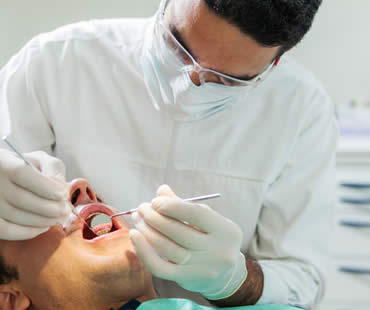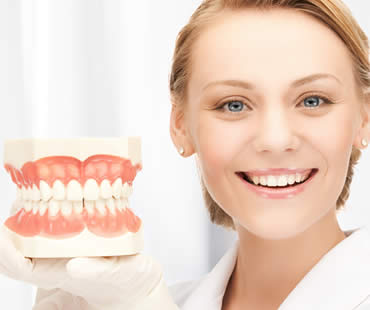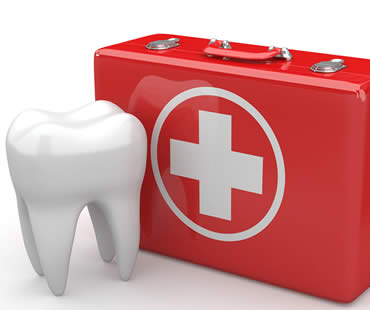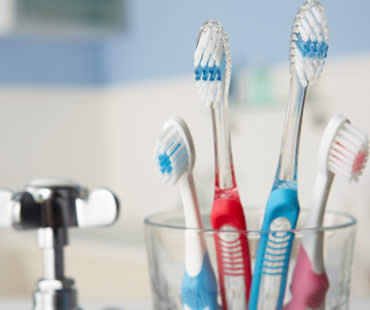
by Dr. Adkins | May 1, 2020 | Blog, Dental Information, Dental Topics 2
The school year has started and kids are busy with school, sports, and social activities. It’s a challenge sometimes to get your kids to eat healthy when they are on-the-go, not only for their overall health but also for their oral health. Here are some tasty and healthy snacks that you can offer your kids, and chances are they’ll like them!
Yogurt:
Dairy foods help build strong bones, and they’re also great for a strong mouth. Eating low-fat yogurt provides calcium. Try mixing it with berries and granola for a healthy parfait, or making homemade fruity yogurt popsicles to attract your children’s attention.
Cheese:
Besides providing calcium, cheese helps fight cavities. It triggers saliva production, which washes away food particles in your mouth and the acids that can weaken your teeth. In these ways, cheese halts the process of cavity formation. Cheese not only contains calcium but also phosphorous, which both help rebuild the enamel on your teeth.
Blueberries:
These berries may be small, but they’re packed with Vitamin C, minerals, and folic acid. They also contain ingredients which studies show help prevent diabetes and cancer. Try adding blueberries to pancakes and muffins, or sprinkling them with a small amount of sugar and topping them with whipped cream.
Almonds:
Nuts like almonds contain ingredients to fight diseases, as well as Vitamin E, fiber, calcium, and iron. Most kids enjoy eating almonds raw, but remember they are a choking hazard for young children.
Whole wheat bread:
Bread made with whole wheat provides kids with iron, zinc, magnesium, and vitamins. Whole grain cereal offers calcium, fiber, and vitamins. Enjoying these whole wheat snacks with milk provides an even healthier snack for your kids.
We treat patients from McDonough and the surrounding area

by Dr. Adkins | Apr 24, 2020 | Blog, Dental Topics 2, General Dentistry
It’s easy to put off a trip to the dentist if you’re not experiencing any pain or noticeable issues. Maybe it’s inconvenient in your busy schedule, maybe you don’t want to spend the money, or maybe you experience anxiety about dental visits. None of these are good enough reasons to forego proper dental care so that you ensure a healthy mouth and attractive smile.
Having regular checkups with your general dentist is important for a variety of reasons. Probably the most beneficial reason is to catch problems early, before they have time to become serious and negatively impact your oral health. Cavities and gum disease are both examples of issues that can wreak havoc in your mouth if left untreated, but if handled quickly they may disappear with as little as a fluoride treatment or change in your hygiene routine. Avoiding treatments like fillings, crowns, or root canals – not to mention the associated costs to your wallet and your schedule – are great reasons to see your dentist every six months!
Another benefit of regular checkups is a brighter, more beautiful smile. Even the best dental hygiene at home can’t reach every bit of plaque or tartar that accumulates on your teeth. Professional cleanings eliminate buildup to give you a more appealing smile, as well as removing harmful and stinky bacteria from your mouth.
Your overall health also reaps the rewards of consistent dental care. Oral problems can impact your general health through things like introducing dangerous bacteria into your body that can spread and cause various health risks. Also, your dentist may notice signs of health issues you might not realize, such as cancers or diseases or nutritional deficiencies.
Make your smile a priority and visit your general dentist regularly. Don’t let excuses get in the way of receiving the rewards dentistry has to offer.
We treat patients from McDonough and the surrounding area

by Dr. Adkins | Apr 17, 2020 | Blog, Dental Topics 2, Dentures
Getting back your ability to smile and eat with a complete set of teeth is one of the great benefits of dentures. To prevent infections, sores, or further tooth damage, it is important to maintain dentures properly. Here are some ways that dentists advise to keep your dentures in great condition.
Cleaning
Rinse your dentures well after meals to remove food particles and avoid stains. Brush them daily with a soft toothbrush to remove plaque and deposits. Use a mild soap or product that your dentist recommends, but avoid harsh toothpaste or strong cleaners.
Soaking
Soak your dentures in water or cleaning solution when you are not wearing them, especially overnight. This helps keeps them from drying out or becoming misshapen. Do not use hot water.
Rinsing
If you use a cleaning solution, rinse your dentures well before putting them back in your mouth. Avoid swallowing denture cleaning solution because it can cause stomach upset.
Handling
Handle your dentures very carefully so that you don’t drop them or bend them. Clean them over a basin filled with water, so that if they fall they shouldn’t be damaged.
Visiting your dentist
Maintain regular checkups with your dentist to get both your mouth and your dentures examined. Most dentists recommend visits every six month for ideal results. See your dentist sooner if your dentures are not fitting well, are causing irritation, or have become loose.
We treat patients from McDonough and the surrounding area

by Dr. Adkins | Apr 10, 2020 | Blog, Dental Topics 2, Teeth Whitening
A brighter smile can make a big difference in your appearance. There are lots of choices today for improving your tooth color. Here are details about some of the options so you can decide which way you may want to whiten your smile.
Eliminating the need:
One way to eliminate the need for teeth whitening is to avoid foods and drinks that are known to cause stains. These include items like coffee, tea, red wine, berries, soy sauce, balsamic vinegar, and curry. If you do consume foods that stain, try to brush your teeth as soon as possible before stains can attach to your teeth.
Whitening at home:
There are many products available at your drugstore to help you brighten your smile at home. Whitening toothpastes and mouthwashes are two types of options, although it can take a while to see results from these methods. Whitening strips are a popular choice, which are covered in a bleaching solution and attached to the fronts of your teeth. Depending on the brand and strength, they might be in place from 5 to 30 minutes daily for a week or two in order to achieve the desired results. Overuse of these strips can increase teeth sensitivity, so be careful not to use them too often.
Professional whitening:
Whitening procedures performed at your dentist’s office are usually the fastest and most effective way to spruce up your smile. Custom trays filled with a higher strength bleaching gel may be made to be worn either in the office or at home later. Another method that must be administered in the office involves a bleaching agent applied to your teeth’s surface and then a bright light to speed up the process. You can typically expect dramatic results from this type of professional whitening.
If you live in the McDonough area contact us today

by Dr. Adkins | Mar 27, 2020 | Blog, Dental Information, Dental Topics 2
Problems with your mouth or teeth can occur suddenly. You might be injured playing a sport, eating, or even just while doing a seemingly harmless activity. You should know what types of dental problems are considered emergencies, and what to do while waiting to see your dentist. Quick action can make a big difference in saving a tooth, or limiting damage to your mouth or face.
What is considered an emergency?
Not every dental problem must be treated as an emergency, but some do require professional treatment as soon as possible. This includes a broken or knocked out tooth, lost crowns and fillings, severe toothache, infection, and injuries to the soft tissues of your mouth.
What should I do?
See your dentist as soon as possible to treat the problem and prevent further damage. Here are some steps to take if you experience any of the following common dental emergencies:
- Severe toothache – rinse your mouth with warm water and floss to remove trapped food.
- Swelling – apply a cold compress on the outside of the swollen area. Do not place any painkiller or aspirin against your gums, because it can burn your gum tissue.
- Chipped or broken tooth – if possible, save the piece that has broken off. Rinse both the piece and your mouth with warm water. If it is bleeding, hold gauze on the area. Apply a cold compress to relieve pain and reduce swelling.
- Lost filling – apply dental cement from your drugstore to fill the hollow area until you can see your dentist. Or, try placing a bit of sugarless gum into the area.
- Lost crown –try to replace the crown on your tooth and hold it in place temporarily with dental cement, denture adhesive, or toothpaste.
- Abscess – infections in your mouth can become abscessed, which is a serious condition. Rinse with warm salt water and see your dentist immediately.
- Soft tissue injuries – treat damage to your gums, cheeks, tongue and lips by rinsing with warm salty water. Hold gauze to the specific area to control bleeding, and hold a cold pack to the external area.
We treat patients from McDonough and the surrounding area

by Dr. Adkins | Mar 20, 2020 | Blog, Dental Information, Dental Topics 2
Chances are you would be disgusted at the thought of leaving your eating utensils on your bathroom counter exposed to germs, and never washing them but continuing to eat with them. This is essentially what you’re doing if you leave your toothbrush sitting out, and never sanitize or change it. Let’s talk about how to keep your toothbrush from being a germ-infested threat to your health.
Your toothbrush can be contaminated by bacteria, saliva, blood, and food particles with each use. Even after you rinse it with water, your toothbrush may appear clean but germs linger on the bristles. Some of the sources of bacteria on your toothbrush include:
- Your mouth, which transfers germs to your toothbrush during use.
- The environment, because bathrooms are often the most contaminated room in your house.
- The packaging, since toothbrushes aren’t sold in sterile packages they can arrive with germs already on them.
Here are some tips to guard your toothbrush from germs:
- Before and after you brush your teeth, wash your hands to get rid of germs.
- Rinse your toothbrush well with water, and then allow it to air dry.
- Store the toothbrush upright so that water can drain from it while drying.
- Consider storing your toothbrush in a dry area outside of the bathroom, away from humidity and toilet spray
- Replace your toothbrush every 3-4 months, or more often if you notice worn bristles.
- Do not share your toothbrush with anyone.
- Do not soak your toothbrush in disinfectant or mouthwash, which can lead to cross contamination
- Do not bother microwaving your toothbrush or running it in the dishwasher, because these tactics may damage your brush.
Schedule your appointment at our McDonough dental office








 (470) 665-5292
(470) 665-5292  E-Mail Us
E-Mail Us 
